Spray paint is the secret Instagrammers are using to update their kitchen appliances – but this hack comes with a warning
Should you be spray painting your kitchen appliances? Experts share their tips

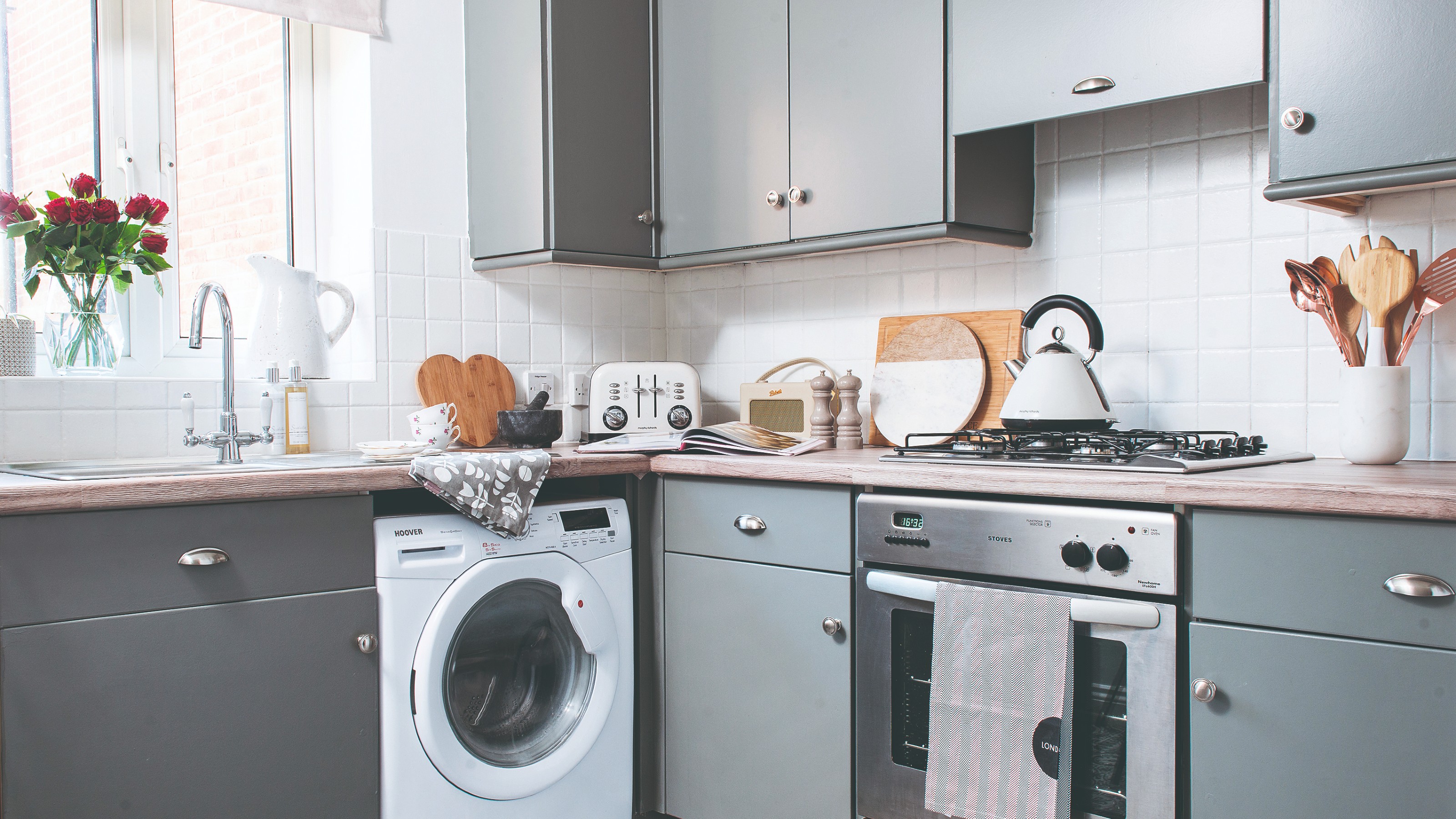
Sign up to our newsletter for style inspiration, real homes, project and garden advice and shopping know-how
You are now subscribed
Your newsletter sign-up was successful
EDITOR’S NOTE: An earlier version of this article included a quote from a purported expert whose credentials we have not been able to verify. The quote has been removed. We regret this lapse in our verification process and have updated our internal protocols to reduce the risk of recurrence.
Are you unhappy with the colour or finish of a kitchen appliance in your possession? Have you ever thought of spray painting kitchen appliances? Whether the discontent is down to your evolving tastes or the colour scheme of your kitchen changing and said appliance no longer fitting in. Rather than getting rid of the coffee machine, microwave or fridge in question to replace it with a shiny new version, we offer a much cheaper (and fun) way of upgrading it. Paint! It’s that simple.
Turns out you can paint more than just walls or reclaimed furniture. How's that for a paint idea? You can paint your fridge for a colourful makeover too. And if you’re looking for more adventurous painting ways then you can use spray paint to update your kitchen.
Maybe it has never even crossed your mind or perhaps you’ve been flirting with the idea after seeing your favourite Instagram influencer spray painting their appliance. That’s how we first thought of it, coming across Arthty Ragupathy’s sage green coffee machine on her account @av.home, which is a result of her own DIY spray paint job. So we had to find out from our experts whether this is something we should be attempting ourselves and they’ve shared both their tips and their warnings.
Spray painting kitchen appliances
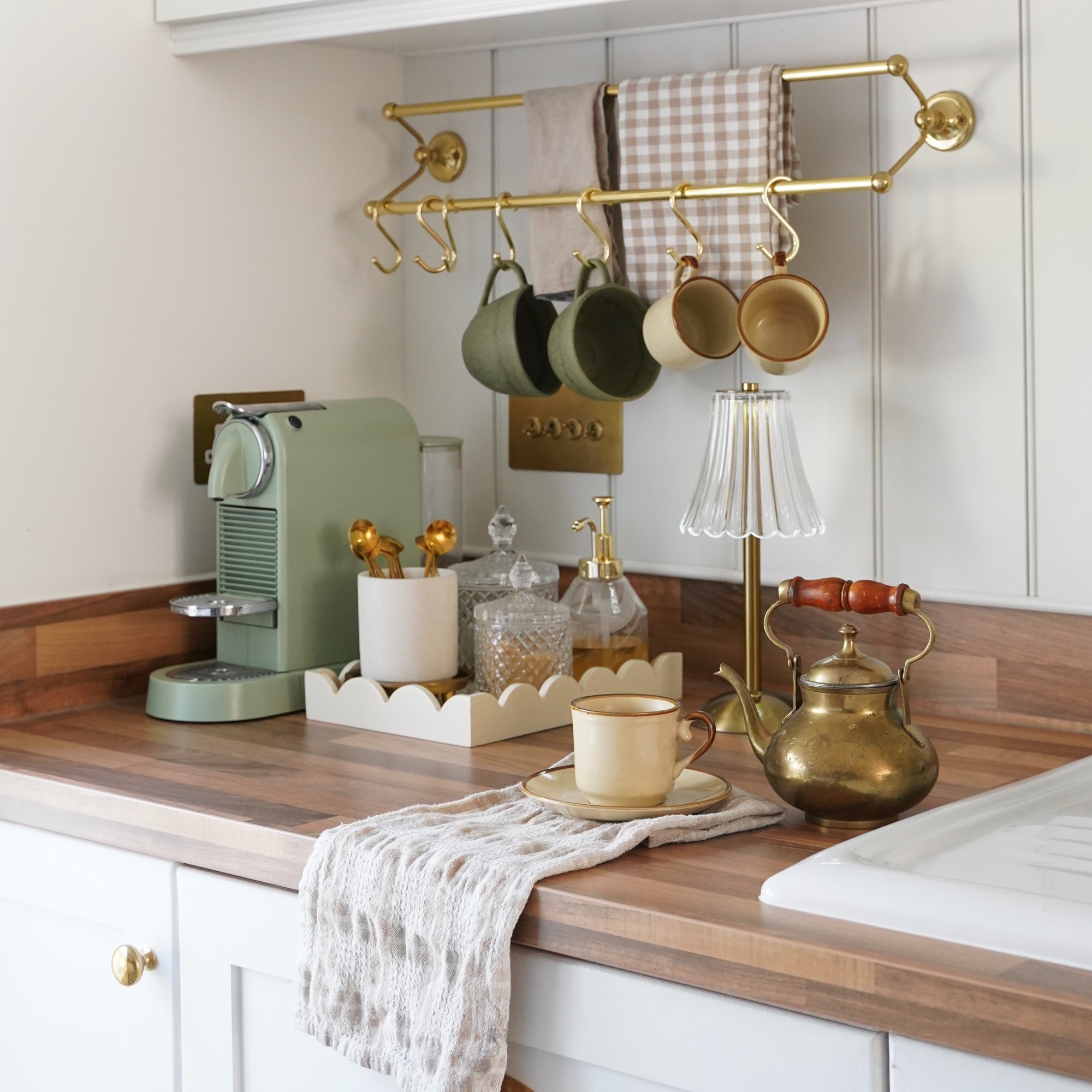
While spray painting your kitchen appliances is certainly a viable option of updating the look of your kitchen, decorating professionals share a few warnings worth considering before you get spraying.
Firstly, this treatment will make the item unreturnable as it will void warranties and insurance.
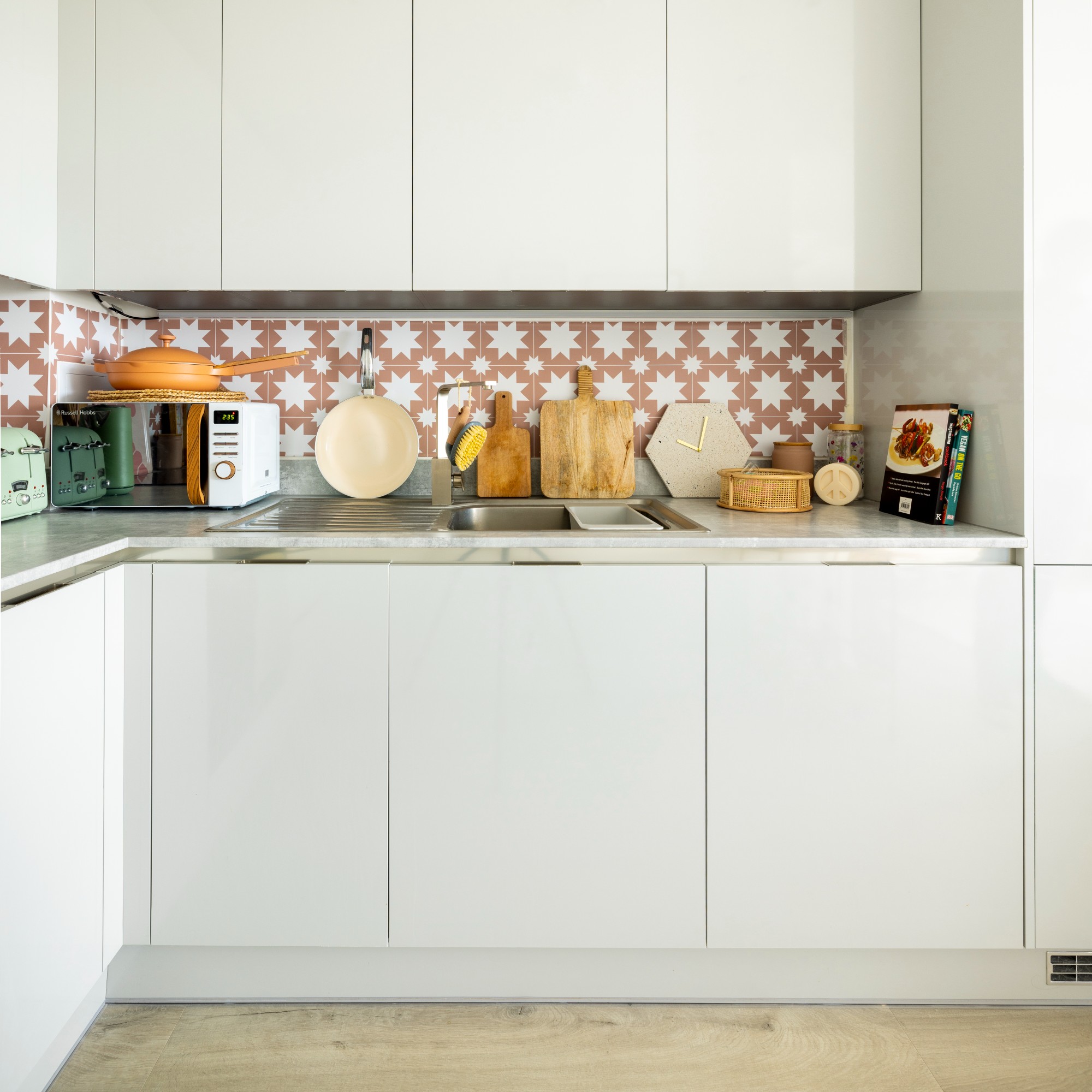
Another key point is the choice of your paint as explained by Natalie White for Rated People, ‘Do not use regular spray paint, it isn’t designed to withstand the temperatures some appliances can get to, and you want to make sure whatever you use is safe for your kitchen.
‘You want to make sure it’s durable and safe, so heat resistant paint is the best paint for the job. You can also get heat resistant, food safe paint which is a great option if you’re wanting to update things such as cookers, where there could be some crossover when cooking.’
Sign up to our newsletter for style inspiration, real homes, project and garden advice and shopping know-how
Last warning is against spray painting (or painting in general) the interior of your appliances as the paint may have chemicals which make them unsafe.
How to spray paint kitchen appliances?
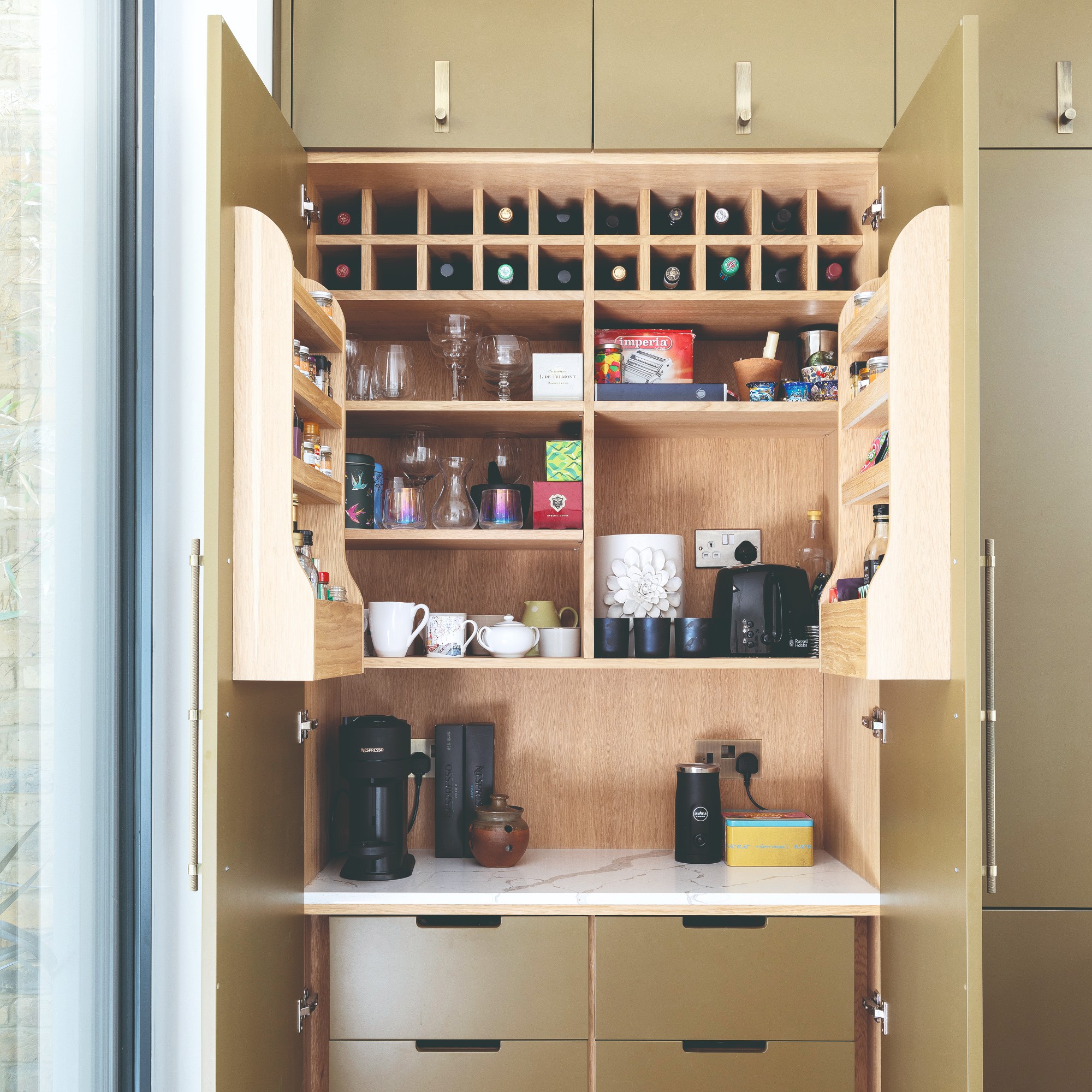
Despite those dire warnings, we are still team spray paint. And our experts agree that this can be a great way to change the colour - or finish as you can choose between matte and glossy - of your appliance.
‘Spray painting certain appliances can sometimes be easier than painting them with a brush, as you’ll be able to reach those hard to get to areas whilst achieving a nice even finish,’ Natalie confirms.
So if you’ve decided to give spray painting a go then start by switching off and unplugging your appliance. Then give it a good clean to rid it of any grease, dirt or rust.
If you’ve given spray painting a shot before and know how to spray paint door handles for example, then you’ll know how messy this can get. Which is why moving it outside is recommended if possible. This will most likely be doable with smaller appliances like coffee machines or microwaves. But fridges or dishwashers? Not so much.
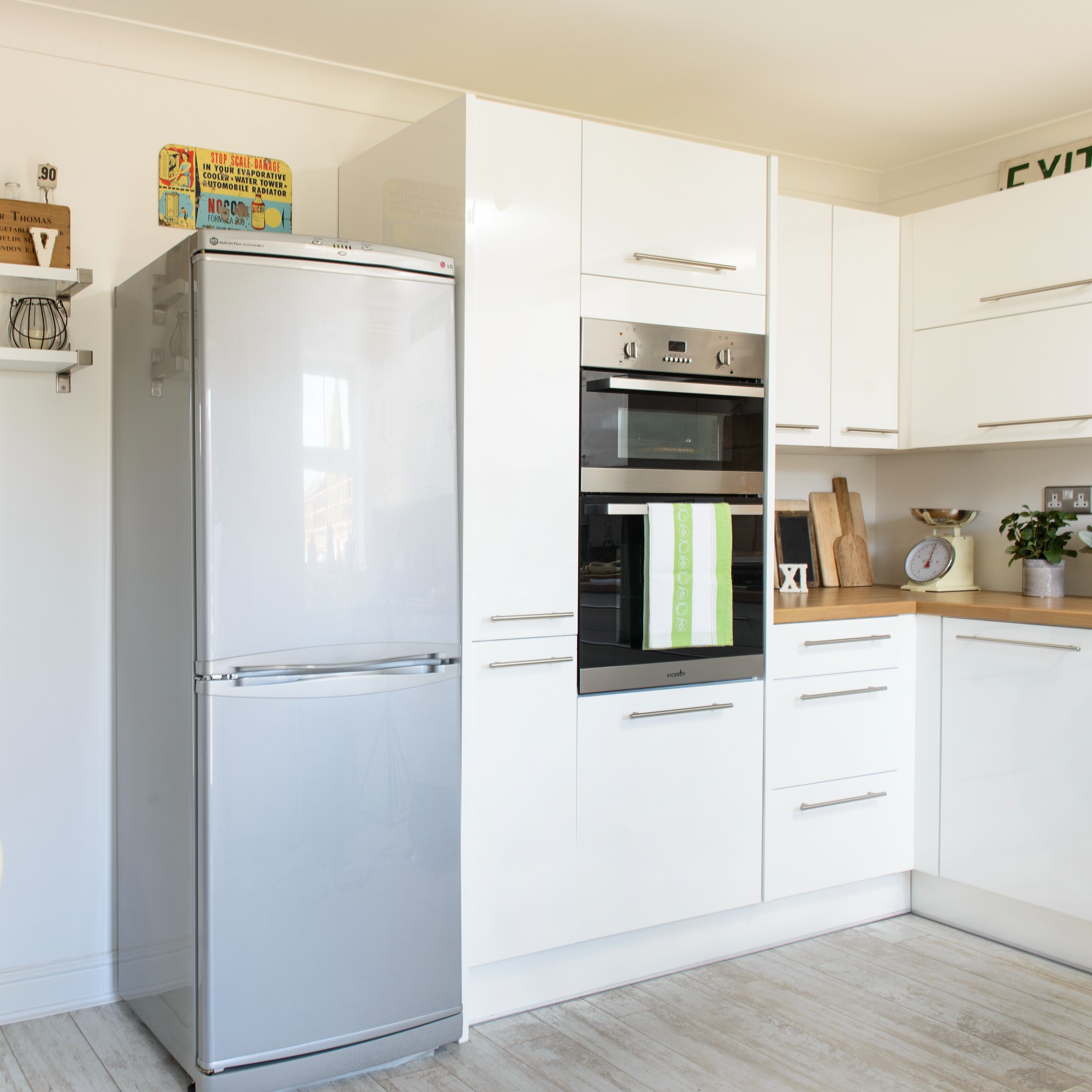
‘Make sure you prep the area before you start by placing down old sheets or plastic sheeting to protect counters and floors. You also want to make sure there’s as much ventilation as possible, so open some windows to get some air flowing through the room,’ Natalie recommends.
Protect yourself by wearing appropriate clothing and accessories - cover your skin with long sleeves and gloves, eyes with goggles and mouth with a mask.
Then it’s finally time to spray paint. If it’s your first time, then do a test run on something like a piece of cardboard to practise.
Prime first (unless you're using a self-priming paint). Do this with two or three lightly-sprayed layers and ensure you get an even finish by keeping the can at a constant distance from the appliance the whole time.

What kind of spray paint can you use on appliances?
When spray painting kitchen appliances, opt for paint that's heat-resistant paint, can cope with temperature fluctuations and offers protection against rust and oxidization. Make it food-safe, too..
We can’t wait to do this ourselves now that we know how.

Sara Hesikova has been a Content Editor at Ideal Home since June 2024, starting at the title as a News Writer in July 2023. She is now also the Ideal Home Certified Expert in Training on Furniture, and so far has tested over 150 different sofas.
Graduating from London College of Fashion with a bachelor’s degree in fashion journalism in 2016, she got her start in niche fashion and lifestyle magazines like Glass and Alvar as a writer and editor before making the leap into interiors, working with the likes of 91 Magazine and copywriting for luxury bed linen brand Yves Delorme among others.